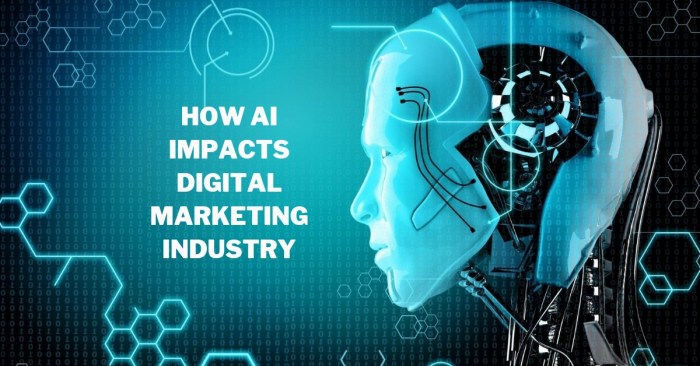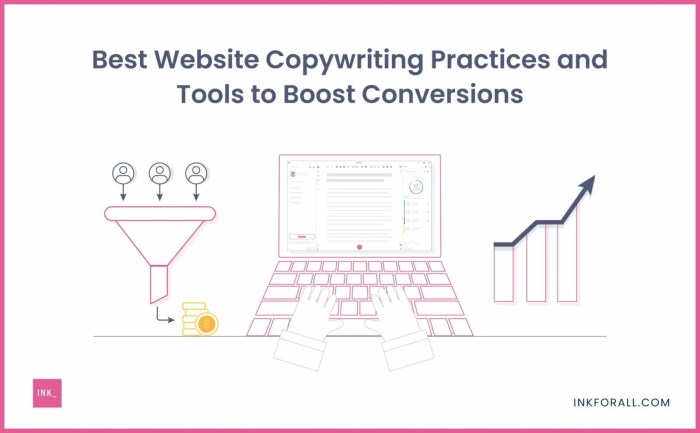AI for hyper-personalized marketing is transforming the way businesses interact with customers. Gone are the days of mass marketing campaigns that treat everyone the same. Today, AI empowers businesses to deliver highly customized experiences, tailoring messages and offers to individual preferences, behaviors, and needs.
This shift towards personalization is driven by the power of AI algorithms that analyze vast amounts of customer data. By understanding individual preferences, purchase history, browsing behavior, and even emotional responses, AI can predict what customers want before they even know it themselves.
Introduction to Hyper-Personalized Marketing
The evolution of marketing has been a journey from broad, mass-market campaigns to increasingly tailored approaches. The goal has always been to connect with the right audience, but the methods have evolved significantly. Hyper-personalized marketing is the latest iteration, leveraging the power of artificial intelligence (AI) to create truly unique and individual experiences for each customer.
This approach goes beyond traditional personalization, which often relies on basic demographics or past purchase history.
Limitations of Traditional Personalization Methods
Traditional personalization methods often fall short of delivering truly unique experiences. These methods typically rely on:
- Demographics:While useful, demographics provide only a general understanding of a customer’s characteristics. They don’t capture individual preferences or nuances.
- Past Purchase History:This data can be helpful, but it limits personalization to products or services the customer has already interacted with. It fails to uncover new interests or predict future needs.
- Basic Customer Profiles:These profiles often contain limited information, providing a superficial view of the customer. They lack the depth to understand individual needs and motivations.
AI overcomes these limitations by analyzing vast amounts of data, including customer behavior, browsing patterns, social media interactions, and even real-time contextual information. This allows for a deeper understanding of individual customers, enabling highly targeted and personalized experiences.
Examples of AI-Powered Hyper-Personalized Marketing
AI-powered hyper-personalized marketing can enhance customer experience in numerous ways. Some examples include:
- Product Recommendations:AI can analyze a customer’s browsing history, purchase history, and preferences to recommend products they are likely to be interested in, even if they have never considered those products before. For instance, a customer browsing for running shoes might receive recommendations for specific models based on their running style, pace, and even weather conditions in their location.
- Personalized Content:AI can tailor content, such as website copy, emails, and social media posts, to individual customer preferences. This ensures that the content is relevant and engaging, increasing the likelihood of conversions and customer loyalty. For example, a customer interested in sustainable fashion might receive emails featuring eco-friendly brands and products, while another customer might receive emails highlighting the latest trends in fast fashion.
- Personalized Pricing:AI can dynamically adjust pricing based on customer behavior, preferences, and market conditions. This can lead to increased revenue and customer satisfaction by offering personalized discounts and promotions. For instance, a customer who has shown a strong interest in a particular product might receive a personalized discount code to encourage a purchase.
- Personalized Customer Service:AI-powered chatbots can provide instant and personalized support, answering customer questions, resolving issues, and even recommending products based on individual needs. This can significantly improve customer satisfaction and reduce wait times. For example, a customer experiencing a technical issue with a product might receive personalized assistance from a chatbot that can access their purchase history and provide tailored troubleshooting steps.
AI Techniques for Hyper-Personalization: AI For Hyper-personalized Marketing

AI-powered hyper-personalization relies on sophisticated algorithms that analyze vast amounts of customer data to deliver highly tailored experiences. These techniques go beyond traditional segmentation, creating individual profiles that cater to each customer’s unique preferences and needs.
Machine Learning and Deep Learning
Machine learning (ML) and deep learning (DL) are fundamental to hyper-personalization. They enable AI systems to learn from data, identify patterns, and make predictions.
- Machine Learningalgorithms analyze customer data to uncover hidden patterns and relationships. For example, by analyzing purchase history, browsing behavior, and demographics, ML algorithms can identify customer segments with similar preferences. These insights can then be used to tailor product recommendations, promotions, and content.
- Deep Learning, a more advanced form of ML, utilizes artificial neural networks with multiple layers to analyze complex data. This allows for more nuanced and sophisticated personalization. For instance, deep learning can analyze customer reviews, social media posts, and other unstructured data to understand sentiment, preferences, and intent.
This information can then be used to create highly personalized product recommendations, content, and marketing campaigns.
Natural Language Processing (NLP)
NLP empowers AI systems to understand and interpret human language. This is crucial for hyper-personalization, as it allows businesses to analyze customer feedback, reviews, and online conversations to glean insights into their preferences and needs.
- Sentiment Analysisuses NLP to analyze the emotional tone of customer feedback, reviews, and social media posts. This information can be used to identify areas for improvement, personalize customer service interactions, and tailor marketing messages.
- Intent Recognitionutilizes NLP to understand the underlying intent behind customer queries and requests. This enables businesses to provide more relevant and helpful responses, improving customer satisfaction and driving conversions.
Predictive Analytics
Predictive analytics leverages historical data and AI algorithms to forecast future customer behavior and needs. This allows businesses to proactively tailor offers and experiences, anticipating customer desires before they even articulate them.
- Predictive Modelinguses historical data to create models that predict future customer behavior, such as purchase likelihood, churn risk, and product preferences. This information can be used to personalize product recommendations, target marketing campaigns, and offer timely interventions to prevent customer churn.
- Next-Best-Action Recommendationsuse predictive analytics to suggest the most relevant and impactful actions for each customer based on their individual profile and predicted behavior. This could involve recommending specific products, offering personalized discounts, or suggesting relevant content.
Data Collection and Privacy Considerations
Hyper-personalized marketing relies heavily on data collection to understand individual customer preferences and behaviors. This data is essential for tailoring marketing messages and offers, but it also raises important ethical and privacy concerns.
Types of Data Used for Hyper-Personalized Marketing, AI for hyper-personalized marketing
Hyper-personalized marketing utilizes various types of data to create targeted campaigns. Understanding the different types of data is crucial for comprehending the potential impact of hyper-personalization.
- Demographics:Basic information like age, gender, location, and income level helps marketers segment audiences and tailor messages based on shared characteristics. For example, a travel company might target young adults with advertisements for adventure tours, while a luxury brand might focus on older, high-income individuals.
- Purchase History:Past purchases provide valuable insights into customer preferences. By analyzing past purchases, marketers can identify products or services that a customer is likely to be interested in. For instance, a clothing retailer might recommend similar items or complementary products based on a customer’s previous purchases.
- Browsing Behavior:Websites and apps track user activity, including pages visited, items viewed, and time spent on different sections. This data reveals user interests and helps marketers understand how customers interact with their products and services. For example, an online retailer might recommend products based on items a customer has viewed or added to their cart.
- Social Media Activity:Social media platforms offer a wealth of data about user interests, opinions, and connections. Marketers can leverage this data to target users with relevant advertisements or create personalized content. For example, a restaurant might use social media data to target users who have expressed interest in similar restaurants or cuisines.
- Location Data:Location data, obtained through GPS or Wi-Fi signals, can be used to target users with location-specific offers or advertisements. For example, a coffee shop might send push notifications to customers who are nearby or offer discounts to users who are in a specific area.
Ethical Considerations Regarding Data Collection and Privacy
While data collection is essential for hyper-personalized marketing, it raises ethical concerns regarding user privacy and data security.
- Transparency and Consent:Users should be informed about the types of data being collected, how it will be used, and how long it will be stored. They should also have the right to opt out of data collection or to delete their data.
- Data Security:Companies must implement robust security measures to protect user data from unauthorized access, use, or disclosure. This includes encryption, access control, and regular security audits.
- Data Minimization:Companies should only collect the data that is absolutely necessary for their marketing purposes. Excessive data collection can raise privacy concerns and increase the risk of data breaches.
- Data Accuracy:The data collected should be accurate and up-to-date. Inaccurate data can lead to misleading marketing messages and negatively impact the user experience.
- Data Discrimination:Marketers should be aware of the potential for data to be used in discriminatory ways. For example, using location data to target users with different prices or offers based on their location could be considered discriminatory.
Ensuring Data Security and Compliance with Regulations
Data security and compliance are paramount for businesses engaged in hyper-personalized marketing. Organizations must take steps to protect user data and comply with relevant regulations.
- GDPR:The General Data Protection Regulation (GDPR) is a comprehensive data protection law that applies to companies processing personal data of individuals in the European Union. GDPR requires companies to obtain explicit consent from individuals before collecting their personal data, to provide transparent information about data processing activities, and to allow individuals to access, rectify, and erase their data.
It also imposes fines on companies that violate its provisions.
- CCPA:The California Consumer Privacy Act (CCPA) is a data privacy law that applies to businesses operating in California. CCPA grants California residents the right to know what personal data is being collected about them, the right to delete their personal data, and the right to opt out of the sale of their personal data.
It also requires businesses to provide clear and concise privacy notices.
- Data Encryption:Encryption involves converting data into an unreadable format, making it inaccessible to unauthorized individuals. Encryption helps protect sensitive user data from breaches and unauthorized access.
- Access Control:Access control mechanisms restrict access to user data based on user roles and permissions. This helps prevent unauthorized access and ensures that only authorized individuals can view or modify sensitive information.
- Regular Security Audits:Regular security audits help identify and address potential vulnerabilities in data security systems. These audits can help ensure that data protection measures are effective and that the company is in compliance with relevant regulations.
Hyper-Personalized Marketing Channels
AI empowers businesses to tailor marketing messages across various channels, ensuring a highly personalized experience for each customer. This allows brands to engage with customers more effectively, leading to increased conversions and customer loyalty.
Email Personalization
AI can analyze customer data, including purchase history, browsing behavior, and email engagement, to personalize email content. This allows businesses to send targeted emails that are relevant to each recipient’s interests and needs. For instance, AI can recommend products based on past purchases, offer exclusive discounts based on customer demographics, or send personalized newsletters based on their preferred topics.
Social Media Personalization
AI can analyze social media data, such as posts, comments, and likes, to understand customer preferences and tailor social media advertising accordingly. This includes delivering personalized product recommendations, running targeted ads based on user demographics and interests, and engaging in conversations with customers based on their online behavior.
For example, AI can recommend products that a user has previously expressed interest in on social media or tailor ad content based on the user’s recent social media interactions.
Website Personalization
AI can personalize website content based on user behavior, such as browsing history, search queries, and time spent on specific pages. This includes displaying personalized product recommendations, tailoring website content to individual interests, and offering dynamic pricing based on user preferences.
For example, a website can use AI to display personalized product recommendations based on a user’s browsing history or tailor website content based on the user’s location and interests.
Product Recommendations
AI can leverage data from various sources, including past purchases, browsing history, and user reviews, to generate personalized product recommendations. This allows businesses to suggest products that are highly relevant to each customer’s preferences and needs. For instance, an e-commerce website can use AI to recommend products that a customer has previously viewed or purchased, or to suggest products based on the customer’s interests and shopping habits.
Advertising Personalization
AI can personalize advertising based on individual preferences, demographics, and online behavior. This includes delivering targeted ads based on user interests, demographics, and past purchases, and optimizing ad placements based on user engagement. For example, an online retailer can use AI to display personalized ads for products that a customer has previously expressed interest in or to target ads based on the customer’s age, gender, and location.
Timing and Frequency Optimization
AI can analyze customer data to determine the optimal timing and frequency of marketing messages. This allows businesses to send messages at the most opportune moments, ensuring maximum impact and engagement. For instance, AI can analyze a customer’s email engagement patterns to determine the best time to send promotional emails or track a customer’s website activity to identify the ideal time to display a personalized pop-up message.
Benefits of AI-Powered Hyper-Personalized Marketing
AI-powered hyper-personalized marketing offers numerous advantages that can significantly enhance customer engagement, loyalty, and ultimately, business success. By leveraging the power of AI, businesses can tailor their marketing messages and experiences to individual customer preferences, leading to more effective and impactful campaigns.
Increased Customer Engagement and Loyalty
Hyper-personalized marketing fosters stronger customer relationships by providing them with tailored experiences that resonate with their unique needs and interests.
- Personalized Content:AI algorithms can analyze customer data to identify their preferences, interests, and past behaviors. This enables businesses to deliver highly relevant content, such as product recommendations, articles, or social media posts, that are more likely to capture their attention and engagement.
- Targeted Promotions:By understanding customer demographics, purchase history, and browsing behavior, AI can personalize promotional offers and discounts, making them more appealing and relevant to individual customers. This increases the likelihood of conversions and repeat purchases.
- Personalized Communication Channels:AI can determine the most effective communication channels for each customer based on their preferred modes of interaction. This ensures that marketing messages reach customers where they are most likely to engage, whether it’s through email, SMS, social media, or mobile apps.
Increased Conversion Rates and Revenue Generation
By providing a more relevant and engaging customer experience, hyper-personalized marketing can significantly boost conversion rates and drive revenue growth.
- Improved Customer Journey:AI-powered personalization can optimize the customer journey by guiding customers through relevant product recommendations, providing timely support, and offering tailored incentives. This smoother and more personalized experience increases the likelihood of customers completing their desired actions, such as making a purchase or signing up for a service.
- Increased Sales and Revenue:By delivering personalized experiences, businesses can increase customer satisfaction and loyalty, leading to higher repeat purchase rates and overall revenue growth. For example, a clothing retailer using AI to personalize product recommendations saw a 20% increase in conversion rates and a 15% rise in average order value.
Understanding Customer Sentiment and Tailoring Marketing Strategies
AI can analyze customer feedback, social media interactions, and online reviews to gain insights into customer sentiment and preferences. This enables businesses to adapt their marketing strategies to address evolving customer needs and expectations.
- Real-Time Feedback:AI can monitor customer feedback across various channels, including social media, online reviews, and customer support interactions. This allows businesses to identify and address any negative sentiment promptly, preventing potential brand damage and fostering customer satisfaction.
- Predictive Analytics:AI can analyze historical data and current trends to predict customer behavior and preferences. This allows businesses to proactively adjust their marketing strategies, targeting customers with the most relevant offers and messages at the right time.
Challenges and Future Directions
While AI-powered hyper-personalized marketing offers numerous benefits, it also presents several challenges and ethical considerations that require careful attention. Understanding these challenges and exploring future directions is crucial for responsible and sustainable implementation of AI in marketing.
Data Bias and Ethical Concerns
Data bias, a pervasive issue in AI, can significantly impact the effectiveness and fairness of hyper-personalized marketing. If the data used to train AI models is skewed or incomplete, the resulting recommendations may be biased, leading to discriminatory or unfair treatment of certain customer segments.
Ethical concerns arise when AI algorithms are used to manipulate or exploit consumers’ vulnerabilities, potentially violating their privacy or autonomy.
Closure

AI-powered hyper-personalized marketing is not just a trend; it’s the future of customer engagement. By leveraging the power of AI, businesses can create truly personalized experiences that foster stronger customer relationships, drive higher conversion rates, and ultimately, achieve greater success.
The key is to embrace ethical data practices, ensuring privacy and transparency while harnessing the potential of AI to create a more personalized and fulfilling customer journey.
FAQs
What are the main benefits of AI for hyper-personalized marketing?
AI-powered hyper-personalized marketing offers numerous benefits, including increased customer engagement and loyalty, higher conversion rates, improved customer satisfaction, and a deeper understanding of customer sentiment.
How can I ensure data privacy and compliance with regulations like GDPR?
Data privacy and compliance are crucial. Businesses must implement robust data security measures, obtain informed consent from customers, and ensure transparency in data collection and usage. They should also adhere to relevant regulations like GDPR to protect customer data.
Is AI for hyper-personalized marketing suitable for small businesses?
Yes, even small businesses can benefit from AI for hyper-personalized marketing. There are affordable AI tools and platforms available that can be easily integrated into existing marketing strategies.
What are some common examples of AI-powered hyper-personalized marketing?
Examples include personalized product recommendations on e-commerce websites, tailored email campaigns based on purchase history, and targeted social media ads based on user interests.
